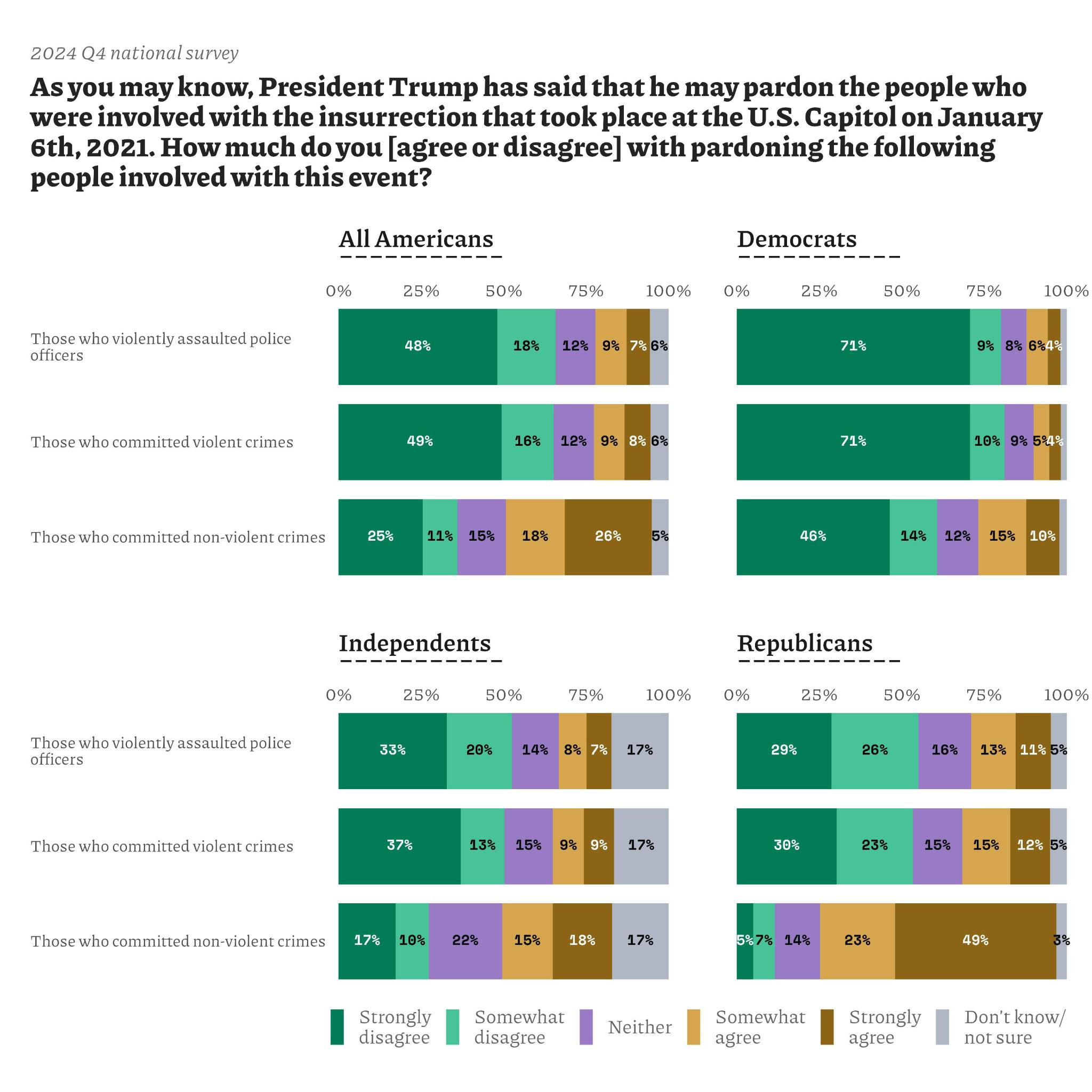Across Party Lines, Americans Oppose Pardons for Jan. 6 Violence
In This Resource
Americans overwhelmingly oppose pardons for people who committed violent crimes while storming the U.S. Capitol on Jan. 6, 2021, according to a new survey from States United.
The survey found a firm consensus, across party lines, that the attackers who took part in violence that day should face consequences for their actions.
In all, about two-thirds of respondents oppose pardons for those who committed violent crimes on Jan. 6, including assaulting police officers, the survey found. Majorities of Democrats, Republicans, and independents oppose pardons in those cases.
The Capitol attack was linked to the deaths of nine Americans. It left more than 140 law enforcement officers injured and caused millions in damage. More than 1,200 people have been convicted or pleaded guilty in federal court.
President-elect Donald Trump has said he will “most likely” issue pardons to at least some of the attackers.
States United partnered with YouGov on the national survey of 1,519 adults between Dec. 12 and 18.
Respondents were asked:
“As you may know, President Trump has said that he may pardon the people who were involved with the insurrection that took place at the U.S. Capitol on January 6th, 2021. How much do you agree or disagree with pardoning the following people involved with this event?”
- Those who violently assaulted police officers
- Those who committed violent crimes
- Those who committed non-violent crimes
Respondents could say that they strongly agree, somewhat agree, neither agree nor disagree, somewhat disagree, strongly disagree, or that they didn’t know or weren’t sure how to respond. The full findings are below.

* In keeping with best research practices, we classify independent voters who reported “leaning” toward either the Democratic or Republican parties as partisans. Therefore, we define “independents” as those respondents who professed no partisan attachments whatsoever.
This survey is based on 1,519 interviews conducted on the internet of U.S. adults. Participants were drawn from YouGov’s online panel and were interviewed between Dec. 12 and 18, 2024. Respondents were selected to be representative of American adults. Responses were additionally weighted to match population characteristics with respect to gender, age, race/ethnicity, education of registered voters, and U.S. Census region based on voter registration lists, the U.S. Census American Community Survey, and the U.S. Census Current Population Survey, as well as 2020 presidential vote. The margin of error for this survey is approximately ± 2.8 percentage points, though it is larger for the analysis of partisan subgroups described above. Therefore, sample estimates should differ from their expected value by less than the margin of error in 95% of all samples. This figure does not reflect non-sampling errors, including potential selection bias in panel participation or measurement error.